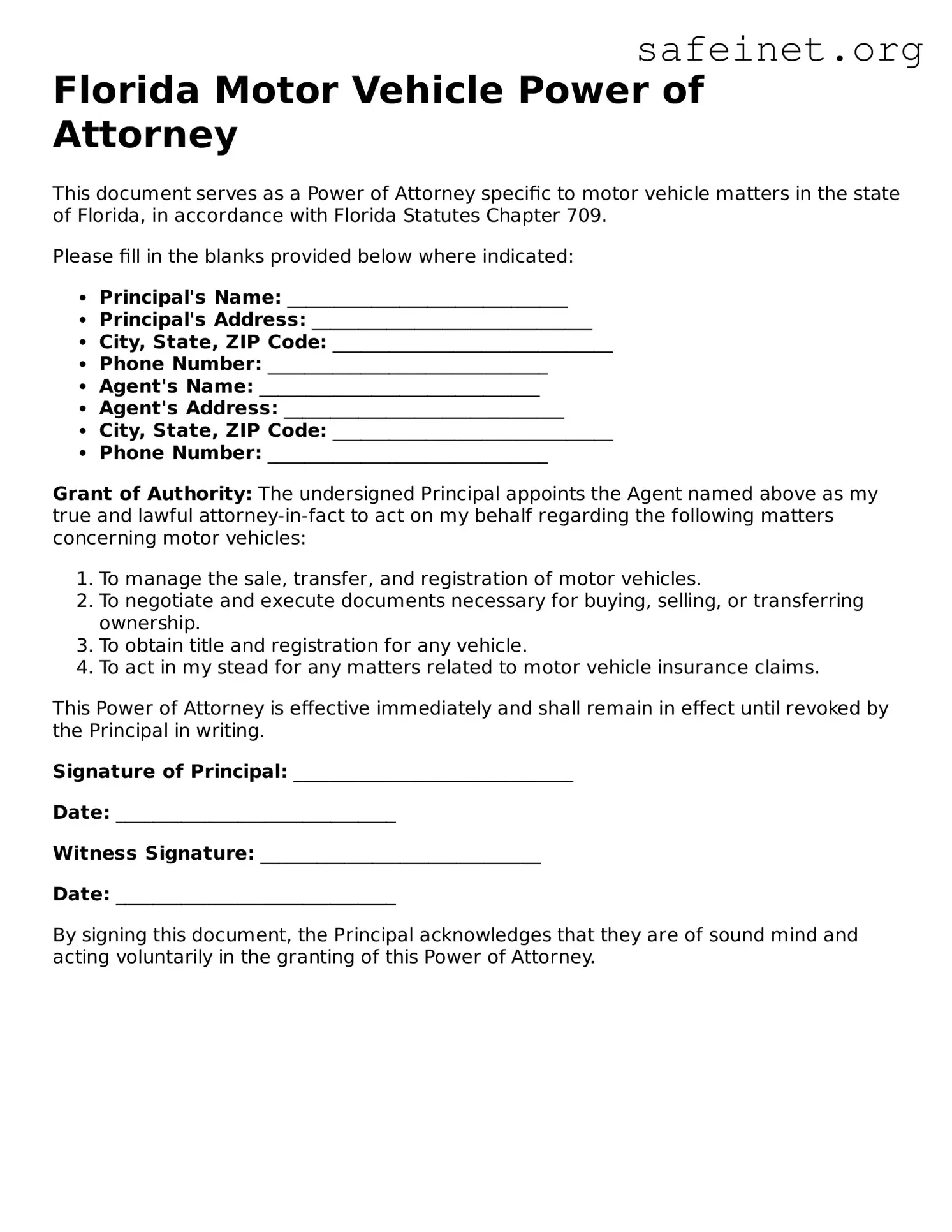What is the Florida Motor Vehicle Power of Attorney form?
The Florida Motor Vehicle Power of Attorney form is a legal document. It allows one person to give another person the authority to handle motor vehicle transactions on their behalf. This can include buying, selling, or transferring ownership of a vehicle.
Who can use this form?
Any individual who owns a motor vehicle in Florida can use this form. This includes residents and non-residents. It is especially useful if the owner cannot be present for a transaction.
What are the key elements included in the form?
The form typically includes the names of the person granting the power and the person receiving it. It also requires information about the vehicle, such as the make, model, year, and Vehicle Identification Number (VIN).
Does the form need to be notarized?
Yes, the Florida Motor Vehicle Power of Attorney form must be notarized. This means a notary public will verify the identities of those signing the document. Notarization helps ensure that the document is valid and legally binding.
How long is the Power of Attorney effective?
The effectiveness of the Power of Attorney can vary. It can be set for a specific period or remain in effect until revoked by the person who granted it. If the car is sold or transferred, the authority typically ends at that point as well.
Can the Power of Attorney be revoked?
Yes, the Power of Attorney can be revoked at any time by the person who created it. A written notice of revocation is recommended to ensure that all parties are informed. This can help prevent any unauthorized actions.
Do I need to file this form with the state?
Generally, the Power of Attorney form does not need to be filed with any state office. However, it must be presented to any party involved in the transaction, such as a dealership or the Department of Highway Safety and Motor Vehicles.
What happens if I don’t use this form when needed?
If you don’t use the Power of Attorney when necessary, it could cause delays in the transaction. For example, if you need to transfer ownership but cannot be present, you won’t be able to do so without this document. This may lead to additional costs or complications.
Where can I obtain the Florida Motor Vehicle Power of Attorney form?
The form is available online through the Florida Department of Highway Safety and Motor Vehicles website. It’s also possible to find it at various legal document providers or law offices. Ensure that you are using the latest version of the form to avoid any issues.
